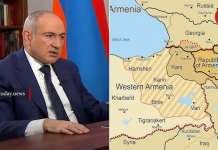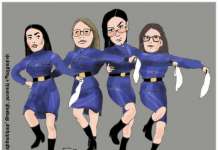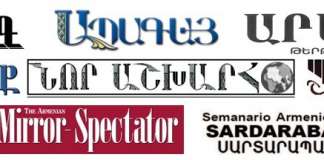“31 Masterminds of European Basketball” was released in 2019 to profile the greatest coaching minds the game has seen on the European continent. The limited-edition book, written by EuroLeague historian Vladimir Stankovic—who began covering many of those greats in 1969—and published by Euroleague Basketball, pays tribute to the stars on the sidelines who have led teams to countless titles. Stankovic tells the stories and digs into the strategies of each of the 31 profiled coaches and in doing so paints the path to trace greatness among European basketball coaches to the 1950s. However, it’s not just about the history of European coaches; five of them will coach in the EuroLeague this season. Enjoy!
Armenak Alachachian, the Soviet Bob Cousy
In the history of the EuroLeague, if I am not mistaken, there are three men who were champs as players and coaches: Lolo Sainz, Svetislav Pesic and Armenak Alachachian. About Pesic, I do not have any doubts that he’s a better coach than he was a player. About Sainz, I would have my doubts, but I think I would tend to choose his coaching side, as well. However, in the case of Alachachian, I have to say that he was a better player than a coach.
However, we have to bear in mind that his coaching career wasn’t that long, due to many reasons. Thanks to his style of game and the title he won in 1969 as the coach in a historic final, he earned his place in the history books (and this book, for that matter.)
His life story is interesting. Of Armenian origin, Alachachian was born in Alexandria, Egypt on December 25, 1930. He played for the USSR, coached the USSR national team, and died in Toronto, Canada on December 4, 2017. He was born in Egypt, where his parents were refugees from Armenia, but his father had died shortly before he was born. Alachachian grew up under the strict vigilance of his mother, who was sent to an Armenian family in Alexandria by the Red Cross. That is where Alachachian started to play basketball.
His mother decided to return to Armenia, which by then was part of the USSR, in 1948, because there was a program for refugees. Armenak was a player already. He was young, but he had fundamentals. Most of all, he was willing to learn and had imagination, something not so common at that time. His talent did not go unnoticed. In 1953, at EuroBasket in Moscow, he was part of the USSR team that won the title with a 75-25 win over Israel. In 1954, he abandoned Yerevan, the Armenian capital, and moved to Alma Ata, Kazakhstan. His attractive game, full of ideas, improvisations and home-baked solutions caught the attention of CSKA Moscow, the team of the Soviet army, which was not so powerful those years.
Between 1953 and 1960, CSKA had not won a Soviet League title. Alachachian arrived in 1958 and soon he became an ideologist for the team. His imagination did not match with the strict rules of the Soviet coaches, but little by little, he earned their trust. He won his first European title in 1961. CSKA defeated ASK in Riga by 62-87 with Alachachian’s 12 points and many assists. In the second game, played in Moscow, CSKA lost 61-66 but won the title. The second title arrived in 1963 after three games against Real Madrid. Los Blancos won the first by 17, 86-69, but CSKA won the second game at home, 91-74, and forced the third game, to be played also in Moscow. CSKA won 99-80 with 8 points by Alachachian.
The following year, after a self-pass off the backboard, he made John McLendon, coach of a United States national team, get on his feet and applaud him. Maybe he was the initiator of the ‘Soviet Bob Cousy’ thing because Alachachian’s game was very reminiscent of the Boston Celtics point guard. In 1964, Alachachian won a silver medal at the Tokyo Olympics, and while he shined on the court, his mother and his sister were granted permission by the Soviet authorities to migrate to Canada.
Alachachian stayed, but soon he went from hero to suspect, just because he had relatives in the West. It is said that he refused to collaborate with the KGB. His trips abroad were reduced, especially to Western Europe.
After his career as a player, in 1965, at 35 years old, Alachachian started working as a coach. It was Aleksandar Gomelskiy, the mighty man at CSKA, who decided to give him a chance at the job in 1968-69. CSKA reached the continental final to be played in Barcelona against Real Madrid. It was an unforgettable duel with two overtimes, and in the end, CSKA prevailed 103-99. Sergei Belov played for 50 minutes and scored 19 points, but the hero of the game was big man Vladimir Andreev, who played the game of a lifetime with 37 points and 11 rebounds, also in 50 minutes.
Alachachian, the coach, was true to the vision he had of basketball as a player: ideas, imagination, tricks and fastbreaks. He also believed in stars. I don’t know if he was familiar with the “rotations” concept, but the fact that Belov and Andreev played 50 minutes in that game confirms that he believed in his best players and kept them on the court.
He was old school and tended to use six to seven players in games, while the rest had their minutes when everything was said and done. In Barcelona, aside from Belov and Andreev, Vadim Karpanov played 42 minutes, Gennady Volnov 37, Aleksandar Kulkov 24 and Jak Lipso 20. Madrid had a powerful team with Clifford Luyk (20 points), Miles Aiken (24), Wayne Brabender (20), Emiliano Rodriguez (18) and Vicente Ramos (9). The bench was manned by legend Pedro Ferrandiz, but CSKA triumphed.
Alachachian forced the Belov-Andreev connection, which kept morale high in tough moments. Madrid led 64-58 in minute 30, and 74-71 with 5 minutes left. Los Blancos were even ahead by 81-77 with 25 seconds left, but Lipso hit a bucket that sent the game to its first overtime.
It was a similar situation 5 minutes later, when Madrid led 93-89 but Lipso managed to tie again with free throws. A dubious traveling call from the referees on Belov made the CSKA players go ballistic. It looked like they wanted to abandon the court, but Alachachian made them come back, convincing them that they were going to win. And win they did, as the second overtime was clearly dominated by CSKA.
When the team got back to Moscow, instead of a well-deserved welcome as champions, the customs agents and police made an extensive search of all their belongings.
“Apparently, someone told the Ministry of Defense that every player on the team had received $6,000 cash, which was an absolutely false allegation, and that I had something to do with it,” Alachachian said later. “They even complained that the team members were not participating in the work of the Komsomol [Youth Branch of the Soviet Communist party]. This made me understand that they were not going to let me work, and I applied to leave for Canada to join my family.”
Despite being a good citizen, one with a great past as an elite sportsman, Alachachian didn’t see a future in the USSR. He kept thinking about joining his mother and sister in Canada, and he managed to do that in 1974. He left the country legally with eight Soviet League titles and seven European titles – four times with the national team, twice as a CSKA player, and once as a CSKA coach.
In Canada, Alachachian started from scratch, first as a valet and later, with the help of Armenian immigrants, he became a great connoisseur of precious stones. He didn’t have more success as a coach, even though his passion for basketball showed when working with the kids of the Armenian community in Toronto. But he left the notes and the books behind.
Armenak Alachachian’s books, brochures, essays and notes were published by the hundreds of thousands of copies in the Soviet Union. His words appeared in Russian and Armenian newspapers and on TV and radio programs. Most notable were his two published books in Russian: “Notes of a Basketball Player” (Moscow, Publishing House of Physical Culture and Sport, 125 pages); and “Not Only About Basketball” (Moscow, Molodaia Gvardia, 319 pages; translated into Estonian as well).
Some players and coaches deserve their spot in the history of basketball, even if they did not win many titles. For sure, Armenak Alachachian is one of them.















